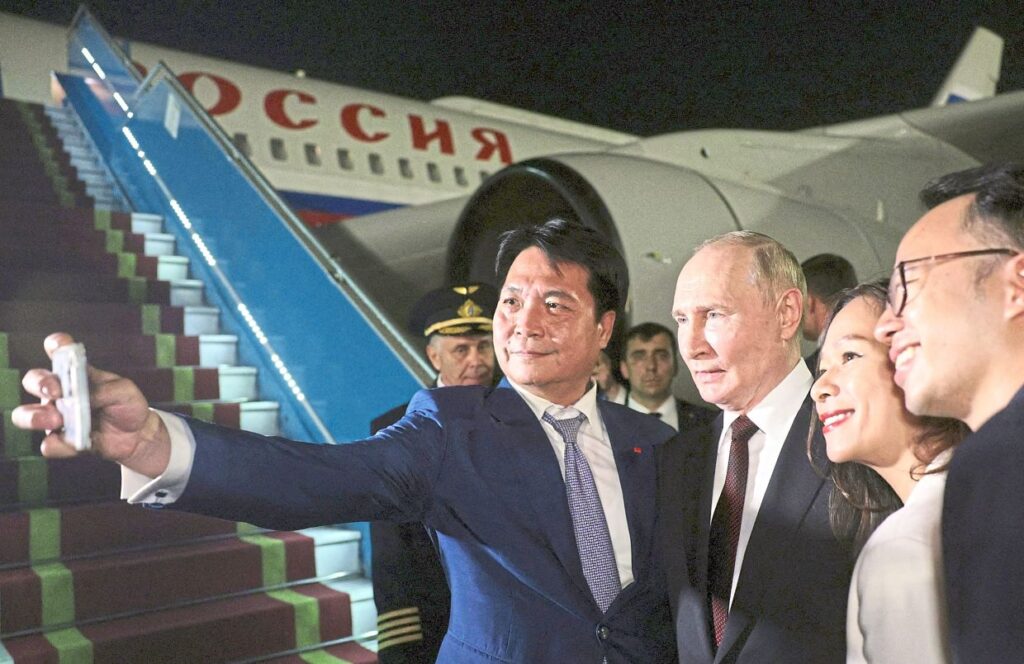Russian and Chinese Diplomacy in South-East Asia Sparks Increased Interest in BRICS Bloc
As Russian President Vladimir Putin and Chinese Premier Li Qiang concluded separate diplomatic engagements in South-East Asia this week, they encountered a region eager to align itself with the BRICS economic consortium—a block increasingly perceived as a counterbalance to Western-dominated institutions.
Thailand, a longstanding ally of the United States, announced its intention to join BRICS last month. "The bloc represents a south-south cooperative framework, which Thailand has long desired to be a part of," explained Foreign Minister Maris Sangiampongsa to reporters last week. This move signifies a broader regional ambition to alleviate economic vulnerabilities arising from the intensifying competition between the United States and China.
Beyond economic considerations, joining BRICS also serves as a statement of growing discontent with the current international order, where Western powers maintain significant influence over pivotal entities such as the World Bank and the International Monetary Fund.
For leaders like Putin and Chinese President Xi Jinping, the burgeoning interest in BRICS testifies to their effective resistance against efforts by the West to isolate them on the global stage. Originally a five-member coalition—comprising Brazil, Russia, India, China, and South Africa—BRICS expanded to include Iran, the United Arab Emirates, Ethiopia, and Egypt as of January this year. This expansion has largely been driven by China’s aspirations to elevate its global influence.
Indonesia was initially considered a prime candidate for BRICS membership last year, before President Joko Widodo signaled deliberation over a hasty decision. Despite this, the momentum for expanding BRICS remains robust. Representatives from 12 non-member nations, including Cuba, Venezuela, Turkiye, Laos, Bangladesh, Sri Lanka, and Kazakhstan, attended a BRICS Dialogue in Russia this month.
Vietnam, having strengthened ties with Washington last year—a move interpreted as a counteraction to China’s regional ascendancy—has also shown significant interest in BRICS. "Vietnam is always ready to participate in and contribute actively to global and regional multilateral mechanisms," affirmed Foreign Ministry spokesperson Pham Thu Hang. Vietnam hosted Russia’s leader this week, notwithstanding strong objections from the United States, which argued that "no country should give Putin a platform to promote his war of aggression" in Ukraine.
Vietnamese-Russian relations trace back to the Cold War and Soviet era, fostering a historical rapport that endures today. A joint statement following recent talks between the nations highlighted Russia’s appreciation for Vietnam’s participation in the BRICS dialogue and their commitment to fortifying ties between BRICS members and developing countries, including Vietnam.
Concurrently, the U.S. State Department announced that a senior official would visit Vietnam to reiterate American support. Daniel Kritenbrink, Assistant Secretary of State for East Asian and Pacific Affairs, is scheduled to meet with senior Vietnamese officials to “underscore the strong U.S. commitment to implementing the U.S.-Vietnam Comprehensive Strategic Partnership.” The visit aims to reaffirm America’s support for a "strong, independent, resilient, and prosperous Vietnam."
For further details, visit the source website: Source Website.
This rewrite incorporates additional historical context, enriches the narrative in a professional tone, and acknowledges the source at the end.
